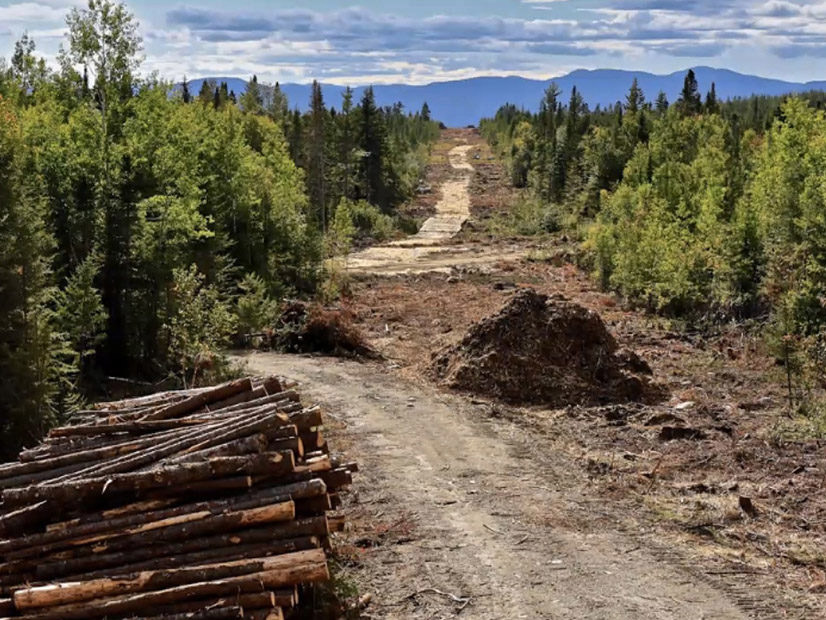
The Maine Board of Environmental Protection last week removed one potential obstacle to the 145-mile New England Clean Energy Connect (NECEC) transmission line, upholding Central Maine Power’s construction permit.
After two days of oral arguments, the board voted Thursday to deny appeals by the Natural Resources Council of Maine (NRCM), NextEra Energy and a group of local entities and individuals to vacate a 2020 Department of Environmental Protection (DEP) order approving CMP’s project application.
The board confirmed DEP’s order approving a permit to construct the project and modified parts of the order related to decommissioning and habitat impact compensation. In addition, the board denied appellants’ request for a new public hearing on CMP’s application.
CMP cannot resume construction, however, unless it prevails in its court challenge of a November 2021 referendum blocking the project.
Compensation, Decommissioning
Prior to hearing oral arguments on the appeals, the board issued a proposed order finding that the department’s order for CMP to conserve 40,000 acres to compensate for the effects of the project on wildlife habitat was sufficient. After hearing petitioners’ arguments, however, the board increased the total compensation to 50,000 acres.
NRMC claimed that the standard compensation ratio used by DEP to calculate the total acreage to be conserved does not reflect the importance of the affected lands. Maine law relies on an 8:1 ratio to replace any lost function from activities that alter wetlands, and DEP applied that standard in the order using an estimated 5,000 acres of baseline affected lands.
“The 8:1 ratio is a typical ratio, but the problem is this is not a typical area — it is a very special part of the state,” said attorney James Kilbreth, representative for NRCM, in testimony Wednesday. “The impacts here are more consequential than in other parts of the state, and the compensation should reflect that higher degree of value.”
In its 2020 appeal of the department’s order approving the project permit, NRCM said that the project is sited in a part of Maine that “supports exception biodiversity,” making the area a “unique and important wildlife habitat.”
The board agreed that the compensation ratio should be higher, and increased it to 10:1, resulting in the new 50,000-acre conservation area.
To address concerns about decommissioning guidelines for the project, the board’s proposed order upheld parts of DEP’s original decommissioning plan, while also addressing what might happen if project construction is completed and not energized or not completed.
Permit Suspended
CMP began construction on the project in January 2021 and halted construction in November when DEP Commissioner Melanie Loyzim issued a suspension order for CMP’s permit to construct. (See NECEC Halts Tx Line Construction, Regulators Suspend Env. Permit.) At that time, CMP had already completed clearing activities on four of the five line segments and begun other infrastructure work.
The board’s proposed order called for CMP to submit a decommissioning plan to DEP for review prior to resuming construction and to begin decommissioning within 18 months of nonrenewal or termination of current power contracts. After hearing oral arguments, the board added a condition to its final order for decommissioning to begin in August 2024 if construction has not resumed by that time.
That 24-month period will allow for an appeal of the board’s decision to play out, if one is filed, board staff said Thursday.
Suspension of CMP’s permit to construct will remain in place unless the Maine Supreme Court decides in favor of CMP in NECEC Transmission LLC, et al. v. Bureau of Parks and Lands, which challenges the legal authority of a referendum on transmission development passed by Maine voters in November. The court heard oral arguments in that case in May.
The referendum authorizes a statutory change requiring legislators to approve high-voltage transmission lines greater than 50 miles that are not necessary for reliability purposes. CMP is asking the court to block retroactive application of that law.


